Turn Your Life Challenges Into a Game With SuperBetter
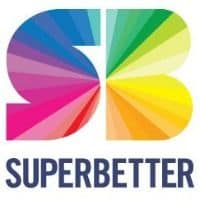
Life is full of challenges – some daunting and others simply a step in the right direction. A team of gamers have band together to find a way to apply game design mechanics to life, empowering individuals to make improvements in their day-to-day obstacles and promoting a more positive and productive outlook on life. This is the new gamification of the classroom: life lessons.
SuperBetter’s Director of Community, Jessica McDonald, was first introduced to an early version of the game SuperBetter in February 2011 while battling osteomyelitis, a serious bone infection in her lower jaw, along with Crohn’s Disease.
McDonald underwent several major surgeries, dozens of antibiotics and hospitalization, reaching a painful limit for what her body could endure. From the hospital bed, it was Jane McGonigal’s vision to transform challenges into games in her Concussion Slayer video that began to turn her outlook around. McDonald logged her progress on her gaming blog and just months after her full recovery, she was asked to join SuperBetter to help bring its mission to many more facing similar challenges.
SuperBetter Brings Structure and Concrete Goals to Challenges
SuperBetter Labs made a splash at SXSW Interactive this March with the launch of its first public beta, which helps individuals achieve goals with game design mechanics that increase personal resilience and positive emotion.
SuperBetter gives players the tools to overcome personal obstacles, such as illness or injury, by breaking down their goals into smaller steps. This helps players feel more resilient and capable of taking on new challenges at the risk of failure. When players succeed, they reach a goal or “epic win.”
“SuperBetter isn’t about life being easy – it’s about tackling things that are hard. We call our goals epic wins because something is only epic if it’s hard, if it took everything you have to get there. By playing the game, players are choosing to be an active participant in their lives, to take on something really hard, to risk failure,” says McDonald. “That takes guts.”
Some of the players overcome challenges such as depression, anxiety, getting higher grades, passing an exam, training for an athletic event, or many other personally set goals. “The point is that the epic win is concrete, something that players can point to and say, ‘I know I’m SuperBetter because I did that,’” says McDonald.
Game Mechanics Affects the Psychology and Behavior of Challenges
The game helps players frame challenges with allies, enemies, points, rewards and community feedback in a series of smaller steps that reach larger personal goals or epic wins.
“Game mechanics create a system, and when we play a game we are essentially learning that system. We can learn how to optimize our performance, achieve a balance, or even just discover the values that make the system complete and functional,” says Chelsea Howe, Director of Design at SuperBetter. “Learning is what makes games fun.”
McDonald says there’s an increase in the number of games or applications available today that help us become more productive. This has an impact on our psychology, behavior and more.
“When you play a game, any game, you’re developing certain skills, and the act of playing a game changes your behavior,” says McDonald. “For example, we know that when you play a game with a powerful avatar for even a few minutes, you’ll have a boost to your confidence for the next several hours. But the idea of using game mechanics to inspire or assist with real-world activities has really exploded in the last few years. Health gaming is growing, as are games like Chore Wars, which challenge you to earn points by cleaning your house.”
“What games teach us about learning is to approach our lives with curiosity and a yearning to understand the systems at work – in ourselves, our communities, our workplaces,” says Howe. “There are always solutions. They just might be more complex or simple than we think and take a little bit of effort to figure out.”
SuperBetter Gamers Report Immediate Shifts in Thinking
McDonald recalls feeling immediate impacts on her thinking when beginning the early version of the game on her own. It taught her new ways to view and approach the events in her life.
“For some players, we’ve heard them say they feel more hopeful right away, as soon as they start playing. For others, it’s when they start to see themselves making progress, and for others, it’s when they finally achieve their epic win,” says McDonald. “It’s a very personal, individualized experience.”
The game, which is now in public beta, is available to anyone 13 years or older who is interested. SuperBetter has a strong player community where users can meet other players, get advice, and read suggestions on how to create their game experience.
With the launch of its recent public beta, SuperBetter hopes to continue to learn how players use the game, which conditions or issues are most prevalent among its players, and how to improve the game to meet players’ needs.
“It’s like mountain climbing; you can’t think about reaching the summit of a 14,000ft mountain, lest it seem too daunting. Instead you focus on putting one foot in front of the other, reaching the next ridge, keep moving forward,” says McDonald. “And the view from the top is what makes it worth it.”
Educators who are interested in a specific partnership request may contact SuperBetter at [email protected]. For more, visit superbetter.com.



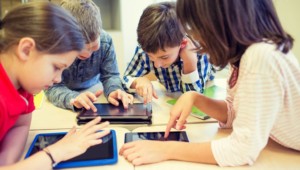
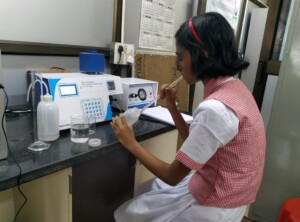
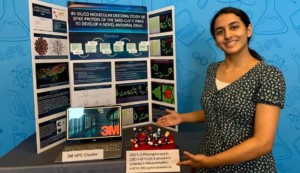
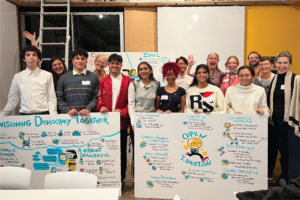
0 Comments
Leave a Comment
Your email address will not be published. All fields are required.